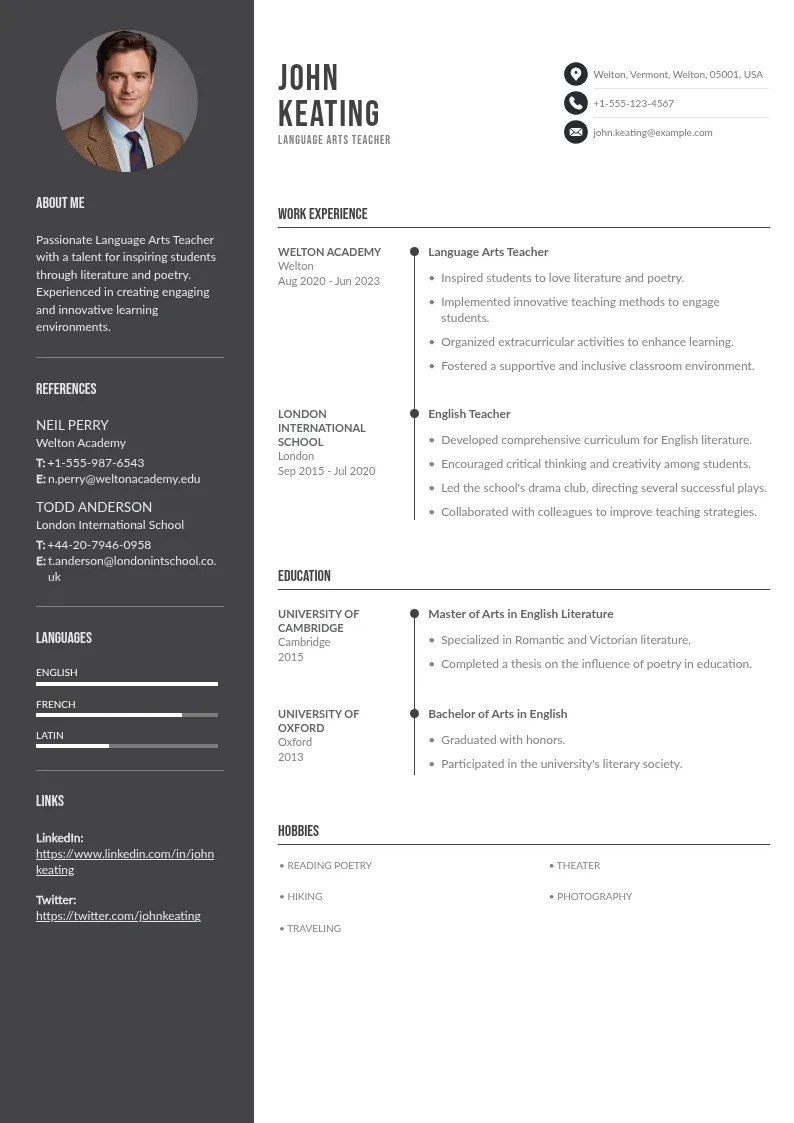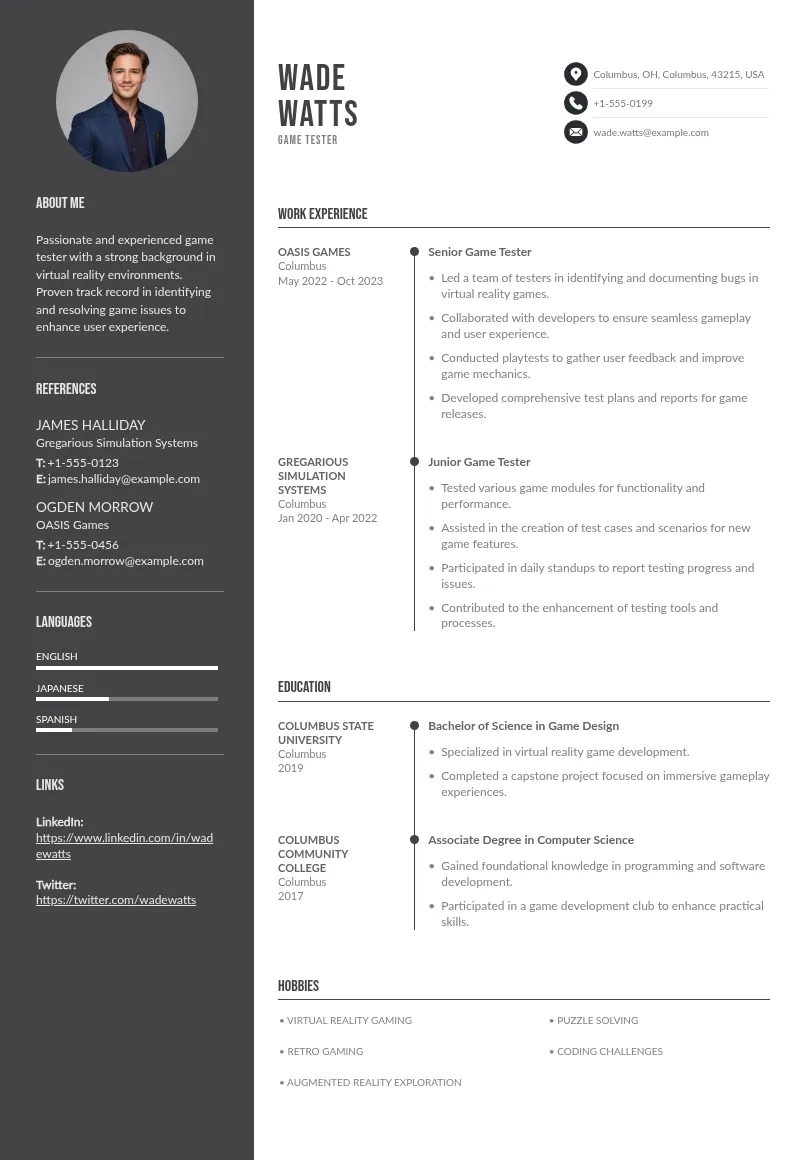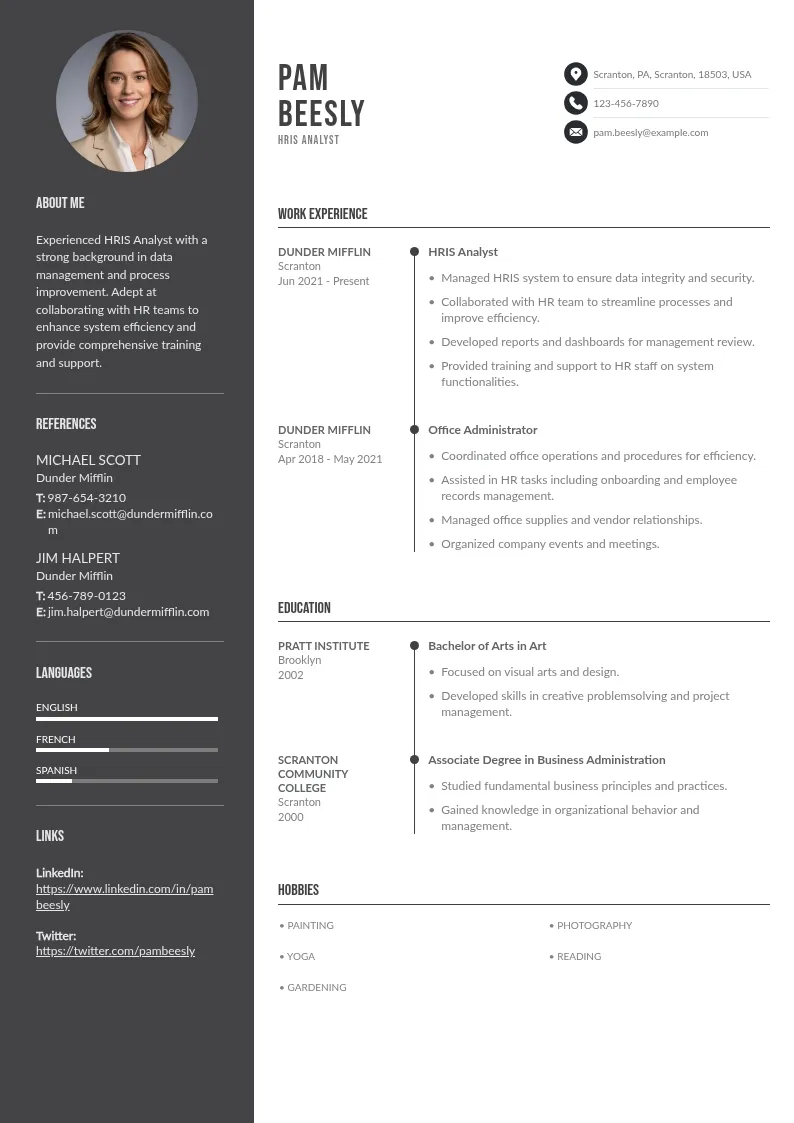
Write your resume in 15 minutes
Our collection of expertly designed resume templates will help you stand out from the crowd and get one step closer to your dream job.


Crafting a resume that highlights your flexibility and commitment can make all the difference when applying from out of town. Let’s break down how to write a relocation resume that not only stands out but also gives you the edge in today’s competitive job market.

What is a Relocation Resume?
A relocation resume is your typical resume with one key difference—it informs employers that you're planning to move and are serious about the opportunity. Instead of just applying anywhere, you're targeting jobs in a specific location, ready to relocate when the right offer comes along.
This resume still highlights your experience and skills, but also addresses why you're applying from a distance. It reassures hiring managers that your relocation is certain and won’t cause any delays, showing you're fully committed to the move and the job.
How to Write a Relocation Resume
Writing a relocation resume is all about balancing the standard resume essentials while addressing the fact that you’re planning to move. Let’s walk through the key steps.
1. Write Your Name and Contact Information
Start with the basics: your name, phone number, email, and any professional online profiles (like LinkedIn). You want hiring managers to be able to reach you easily, so make sure these are up to date. If you’re already in the process of relocating, you might also want to include your new city in your contact details—more on that below.
Example:

2. Mention Your Relocation
This is where you let employers know you're planning to move. A brief mention of your relocation can go a long way toward easing concerns about distance or availability. Make it clear and confident, and align it with the job you’re applying for.
Willing to Relocate
If you’re open to moving for the right opportunity but haven’t finalized the details, clearly state your flexibility. You want to assure employers that relocation won’t be a deal-breaker. Mention this upfront in your resume header or summary to avoid any doubts.
Example:
Or
Relocating Soon
When your relocation is locked in with a set date, mention this specifically. It helps hiring managers understand your availability and makes the process smoother. You can include this in your contact information or professional summary, depending on how soon you’re planning to move.
Example:
Or
Be Location Specific
When tailoring your resume for relocation, specificity is your friend. Mention the city or region where you’re headed. This helps your resume stand out to local recruiters or HR teams who might otherwise skip over long-distance candidates.
Example:
What Address to Put on Your Resume When Relocating
There’s some debate about whether to include your address at all in the digital age. If you’re relocating soon and have a new address, go ahead and use it. But if you're not there yet, you can leave off the full address and focus on mentioning the city or region you’re moving to. Another option is to use "Relocating to [City]" in place of your current location.
Example:

3. Include Your Education
List your educational background as usual, but don’t hesitate to highlight any degrees or certifications that are particularly relevant to the job market you’re targeting. If the industry in your new location values certain credentials, now’s the time to showcase them.
Example:
4. Detail Your Work Experience
Here’s your chance to shine. Provide a detailed rundown of your work experience, focusing on roles that are relevant to the position you’re applying for. If you’ve worked remotely or had experience transitioning between different markets, this is a good time to mention how you’ve handled those changes.
Example:
5. List Your Relevant Skills
Wrap things up by showcasing the skills that make you a perfect fit for the role. Tailor this section to reflect the job description, highlighting skills that are especially important in the new city or industry you're moving into.
Example:

Tips for Applicants Ready to Relocate
Relocating for a new job is an exciting step, but it comes with a few extra things to consider. These tips will help you make a strong impression and stand out—even if you’re applying from afar.
Be Direct About Your Relocation Plans
Transparency is key when you’re planning to relocate. Make sure your resume and cover letter clearly state your move timeline and intentions. This reassures employers that you're serious about the position and committed to making the move.
Mention Relocation in Your Cover Letter
Your cover letter is the perfect place to expand on your move. Explain why you’re relocating and tie it into your passion for the new role and location. Use this space to show your excitement about both the opportunity and the area you’ll be moving to.
Customize Your Resume for the New Job Market
A generic resume won’t cut it. Tailor your resume to the specific industry and city you’re targeting. Research what’s valued in your new location, and highlight skills or experiences that align with the local job market to increase your appeal.
Be Open to Both In-Person and Virtual Interviews
Hiring managers need to know you’re ready for interviews, regardless of your current location. If you’re able to travel for in-person interviews before the move, make sure to mention it. This shows your flexibility and commitment to the job. At the same time, offer virtual options like Zoom, Skype, or phone interviews if traveling isn’t an option right away.

Relocation Resume Template Example
Crafting a relocation resume doesn’t have to be complicated, but it should be tailored to show that you’re serious about the move and ready to hit the ground running. Below is an example of a resume that highlights both a strong professional background and a clear commitment to relocating.
Conclusion
Relocating is a bold move, but with the right resume, it doesn’t have to be a hurdle. By being upfront about your plans, tailoring your experience to the new market, and showcasing your flexibility, you can turn your relocation into an advantage. So, get that resume ready, and start making moves—literally and professionally!

















